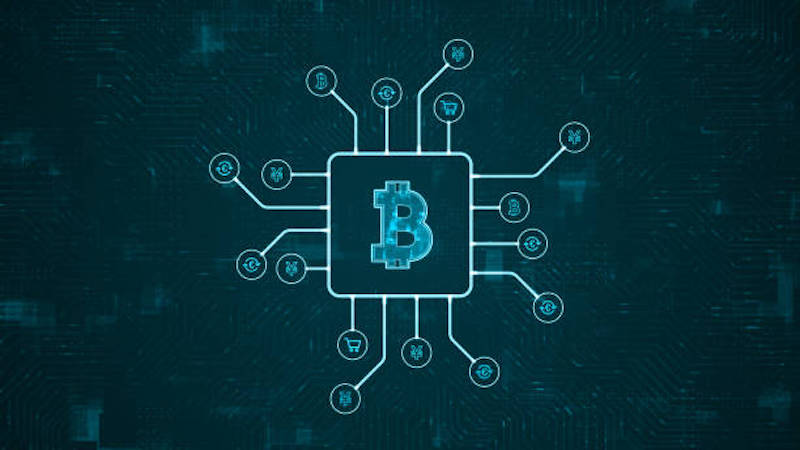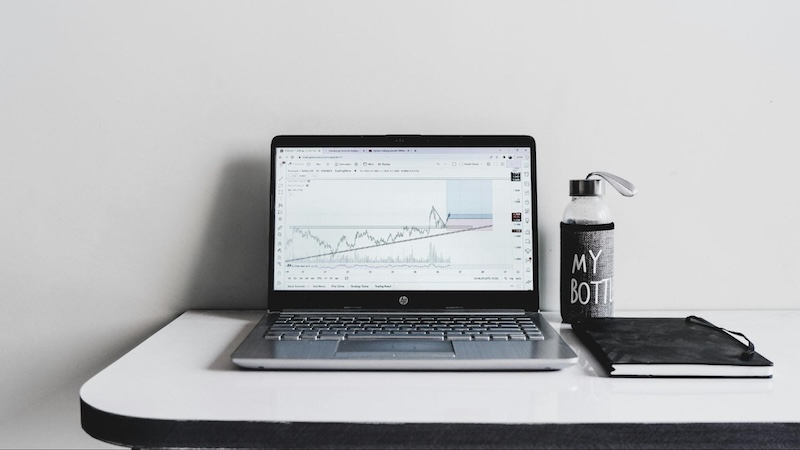Branded Content by Cosmic Press
Blockchain and AI are two amazing technologies that are changing how we do things in many industries. Blockchain is like a big, secure ledger that records all the transactions in a way that everyone can see, but no one can change. AI, on the other hand, is like a super-smart computer program that can learn and make decisions on its own.
These two technologies can work together to make our financial system safer and more efficient. According to a report by IBM, 91% of banks are already investing in blockchain technology, and AI is becoming more common in many industries. This article will explain how AI and blockchain can work together to make financial transactions faster, cheaper, and more secure.
The Role of AI in Enhancing Blockchain Security
The advent of cryptocurrencies like Bitcoin and Ethereum has brought blockchain technology into the limelight. Blockchain, the underlying technology behind these digital currencies, is a distributed ledger that records transactions across a network of computers. It is a transparent and immutable system, meaning once a transaction is recorded, it cannot be altered or deleted. Here is how AI plays an important role in improving blockchain security.
- Transaction Analysis
One of the primary ways in which AI enhances blockchain security is through transaction analysis. AI algorithms can examine transaction patterns and detect any irregularities or signs of fraudulent activity. This can be particularly useful in identifying patterns consistent with double-spending attacks or Sybil attacks, where a malicious user may try to manipulate the blockchain.
2. AI in Consensus Mechanisms
Consensus mechanisms are critical to blockchain security, as they determine how transactions are validated and added to the ledger. Currently, blockchain networks rely on a consensus mechanism that requires a majority of network participants to agree on the validity of a transaction. However, this mechanism can be vulnerable to attacks, such as a 51% attack, where a single entity gains control of more than half of the network’s computing power. AI algorithms can be used to create more robust consensus mechanisms that are resistant to such attacks.
3. AI in Network Monitoring
AI algorithms can also be used to monitor blockchain networks in real-time for signs of suspicious activity. By analyzing network traffic and identifying potential threats, AI can help ensure the security and integrity of the blockchain.
4. AI and Digital Identity Verification
Another area where AI can enhance blockchain security is digital identity verification. AI algorithms can be used to analyze biometric data, such as facial recognition or voice recognition, to verify the identities of users on the blockchain. This can help prevent unauthorized access to the blockchain and reduce the risk of identity theft.
The Role of AI in Enhancing Efficiency
One of the primary ways in which AI enhances the efficiency of blockchain networks is by addressing scalability challenges. Blockchain networks are decentralized and distributed, which means that every transaction must be verified and validated by multiple nodes in the network. As the number of transactions increases, the network can become congested, leading to slower transaction times and higher fees.
AI can help address this challenge by optimising the way transactions are processed. AI algorithms used by auto trading bots such as Ethereum Code can analyze transaction patterns and identify bottlenecks in the network. By doing so, they can help ensure that transactions are processed quickly and efficiently, even as the network grows. This optimization can significantly reduce transaction times and make blockchain networks more scalable. By improving the efficiency of transaction processing, AI can help ensure that blockchain networks remain fast and responsive, even as the volume of transactions increases.
Another way AI can enhance the efficiency of blockchain networks is by improving the accuracy of transaction validation. Currently, blockchain networks rely on a consensus mechanism to validate transactions. However, this mechanism is not always accurate and can be susceptible to attacks. By using AI to analyze network traffic and identify potential threats, it is possible to create more accurate and reliable consensus mechanisms. This can help reduce the number of false positives and make blockchain networks more secure and efficient.
Challenges for AI and Blockchain
While the combination of Artificial Intelligence (AI) and Blockchain presents an array of possibilities for enhancing the security and efficiency of cryptocurrency transactions, there are several challenges to overcome for optimal results.
- Complex Implementation Process: Implementing AI and Blockchain technologies together can be complex and resource-intensive. Companies may face challenges in integrating these technologies into their existing infrastructure and ensuring compatibility with their existing systems.
- Data Privacy and Security: AI relies heavily on data, and ensuring the privacy and security of this data is paramount. With Blockchain, data is publicly visible, which can potentially compromise user privacy. Striking a balance between transparency and privacy is a challenge that companies need to address.
- Scalability Issues: Scalability is a major challenge for both AI and Blockchain technologies. As the volume of transactions and data increases, both AI algorithms and Blockchain networks may face difficulties in processing and handling this increased workload efficiently.
- Ensuring Fairness and Trust: AI algorithms can sometimes display biases, which can affect the fairness of decisions and transactions. Ensuring that AI algorithms are fair and unbiased is a challenge that companies must tackle to maintain trust in the system.
- Regulatory Compliance: Regulatory compliance is a significant challenge for both AI and Blockchain technologies. Governments and regulatory bodies may have strict requirements that need to be met in terms of data handling, privacy, and security. Ensuring compliance with these regulations is essential but can be complex and time-consuming.
- Adapting to New Threats: As technology advances, so do the threats and risks associated with it. Companies must continually adapt to new threats and develop strategies to mitigate them effectively.
Conclusion
Blockchain and artificial intelligence (AI) are two incredible technologies that have the potential to transform how we do things, especially in the world of finance. Blockchain is like a huge digital ledger that records transactions in a secure and transparent way, while AI is like a smart computer program that can learn and make decisions on its own.
These two technologies can work together to make our financial system safer and more efficient. For example, according to a report by IBM, 91% of banks are already investing in blockchain technology, and AI is becoming more common in many industries.
By combining AI and blockchain, we can make financial transactions faster, cheaper, and more secure. This is because AI can analyze data and make predictions to improve efficiency and security, while blockchain offers a secure and transparent way to record transactions.
As these technologies continue to evolve, we can expect to see even more innovations in the future. In conclusion, the combination of AI and blockchain has the potential to revolutionize the financial sector and make our lives easier and more secure.
Branded content furnished by our promotional partners. The Daily Sundial editorial staff is not involved in its production. Content does not reflect the views or opinions of the editorial staff.








